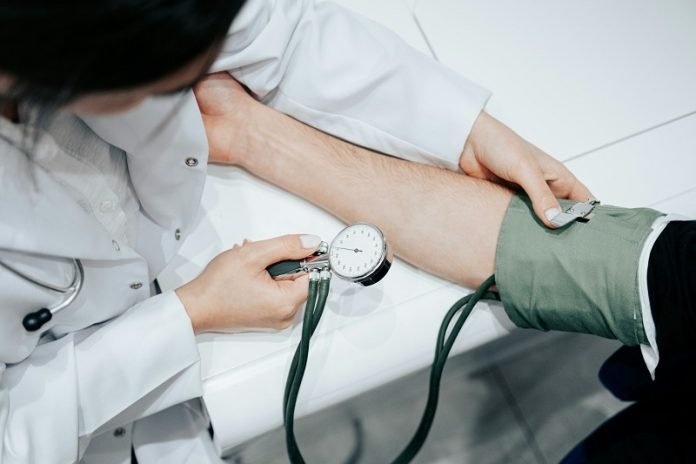
High blood pressure, or hypertension, and anxiety are common health issues that may seem unrelated at first glance.
However, emerging research suggests a complex relationship between the two, where each can influence the other.
Understanding this connection can help individuals better manage both conditions. This review delves into the correlation between high blood pressure and anxiety, providing clear explanations based on the latest research.
High blood pressure occurs when the force of the blood against the walls of the arteries is consistently too high, which can eventually cause health problems, especially in the heart, blood vessels, kidneys, and other parts of the body.
Anxiety, on the other hand, refers to a mental health condition characterized by feelings of worry, anxiety, or fear that are strong enough to interfere with one’s daily activities.
Anxiety can lead to short-term spikes in blood pressure by triggering the body’s fight-or-flight response, which causes the heart to beat faster and blood vessels to narrow.
There is also evidence that chronic anxiety may lead to long-term hypertension. When someone experiences anxiety, the body releases stress hormones like cortisol and adrenaline, which prepare the body to face a perceived threat.
If anxiety is frequent, these hormone levels can remain high, leading to sustained increases in blood pressure.
Several studies have explored this relationship. For example, a study published in the Journal of the American Heart Association found that people with anxiety disorders are more likely to develop hypertension over a 24-year period compared to those without anxiety.
This suggests that anxiety could be a contributing factor to developing high blood pressure over time.
The relationship between high blood pressure and anxiety is bidirectional. Just as anxiety can lead to increased blood pressure, managing a chronic condition like hypertension can also lead to or exacerbate anxiety.
The stress of living with a chronic illness, along with the constant monitoring and management of high blood pressure, can heighten anxiety levels.
Effective management of both high blood pressure and anxiety involves a combination of lifestyle changes, medical treatment, and psychological counseling. Here are some strategies:
- Lifestyle Modifications: Regular physical activity, a balanced diet, and sufficient sleep are beneficial for both blood pressure and anxiety. Exercise, in particular, is effective in lowering blood pressure and improving mood.
- Medication: Sometimes, medications are necessary to manage high blood pressure or anxiety. Antihypertensive drugs are used to manage blood pressure, while antidepressants and anxiolytics can help control anxiety symptoms. It’s important to consult with a healthcare provider about the best treatment plan, as some blood pressure medications can potentially worsen anxiety symptoms.
- Mindfulness and Stress Reduction Techniques: Practices such as meditation, deep breathing exercises, and yoga can reduce stress and help manage both blood pressure and anxiety.
- Cognitive Behavioral Therapy (CBT): This form of psychotherapy is effective in treating anxiety disorders. CBT helps individuals manage anxiety by changing negative thought patterns and behaviors.
Understanding the link between high blood pressure and anxiety is crucial for effective management of both conditions.
By acknowledging the bidirectional relationship, individuals can seek comprehensive treatment strategies that address both physical and mental health.
This holistic approach not only improves the quality of life but also helps in controlling and reducing the potential risks associated with untreated hypertension and anxiety.
If you care about blood pressure, please read studies about unhealthy habits that could increase high blood pressure risk, and people with severe high blood pressure should reduce coffee intake.
For more information about blood pressure, please see recent studies that early time-restricted eating could help improve blood pressure, and results showing plant-based foods could benefit people with high blood pressure.
Copyright © 2024 Knowridge Science Report. All rights reserved.



